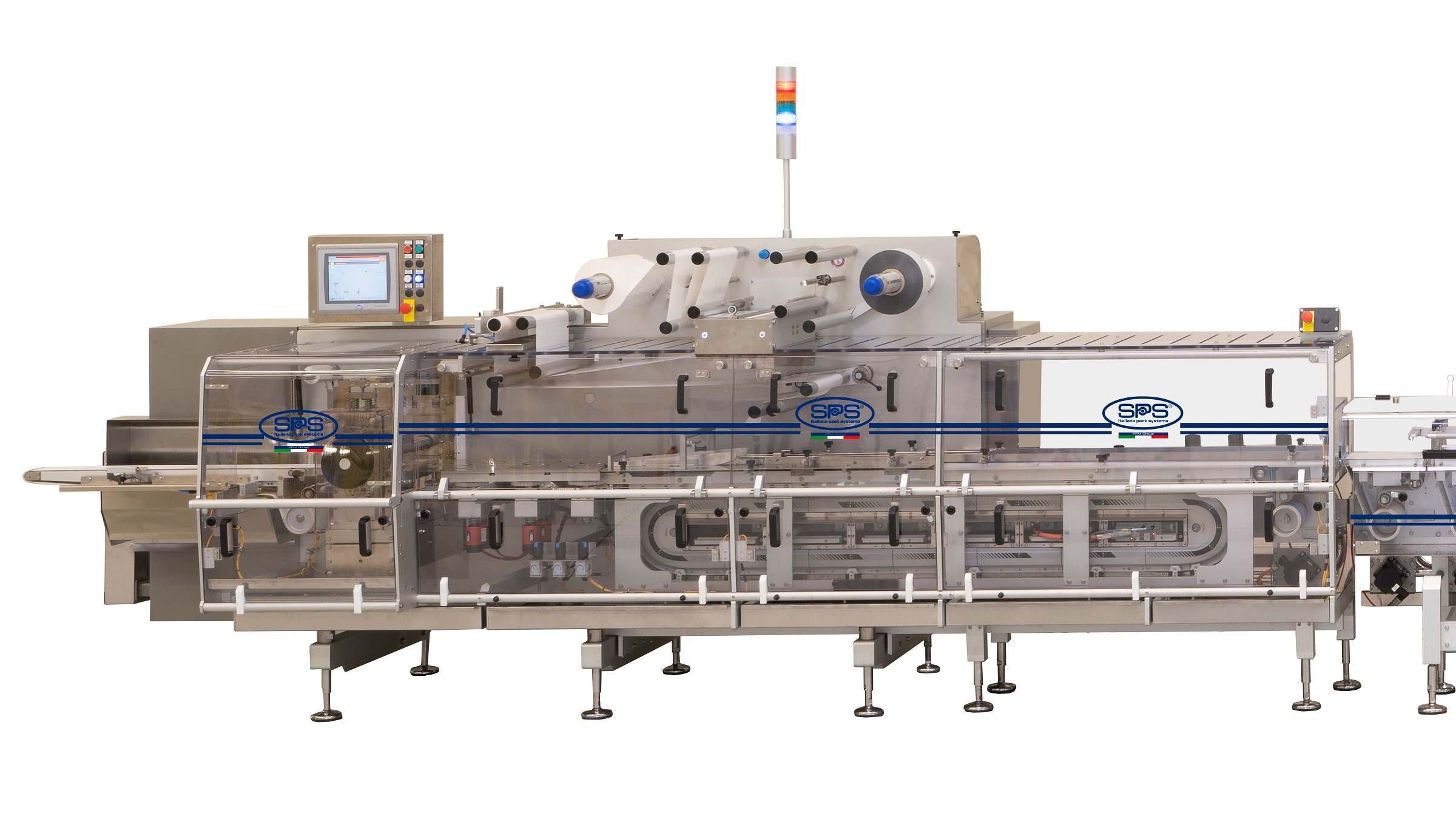Founded in 1964, and now part of PFM Group, SPS Pack Italiana Pack Systems has designed and constructed hundreds of single machines and systems for global customers across five continents.
Focusing primarily on the bakery and confectionary sectors, SPS has witnessed how the introduction of new technologies has evolved market demand; and recognizing this need to adapt, the company has kept pace, delivering new concepts and innovations, while maintaining its focus on flexible packaging.
SPS, part of the Rockwell Automation PartnerNetwork, specializes in the production of automatic pick-up and sorting systems for products arriving from process lines, alongside a wide range of portioning and automatic loading systems and high-speed horizontal flow-pack packaging machines and accessories. In addition, SPS stands out in the production of filling machines for mono or bi-color creams and related automatic feeding systems.
The company develops these customized solutions according to its customers’ requirements, in terms of automation and available space (compact solutions) for markets that have been increasingly moving towards integrated solutions, from which emerge premium-packaged products.
More capable technology
According to Alberto Sacco, Senior Software Developer: “This growth of premiumization has led to the deployment of more capable technology, including vision systems – which help guarantee the absolute quality of packaged products – and advanced handling systems, including robotics and the iTRAK Intelligent Track System from Rockwell Automation, which use independent servo-controlled movers on straight and curved tracks. These systems also help us to address the elevated levels of flexibility demanded by our customers, along with increased performance and reduced format changeover times.
The PFM/SPS group has also been developing solutions specifically dedicated to sustainability. “These solutions are increasingly demanded by the market,” Sacco adds, “which is why we work hand in hand with our customers and a company within our group, which is PFM Techlab, which deals specifically with R&D for the development of sustainable solutions in terms of paper-based and single-component laminates to facilitate their recyclability.”
Boosting capabilities
Alongside the aforementioned Independent Cart Technology, SPS uses other solutions from Rockwell Automation to boost the capabilities of its machines. These include two-axis servo drives, which save space and deliver smaller footprints, and connectivity solutions, which allow its customers to interrogate their machines to analyze operational parameters and performance metrics.
The company also believes in a philosophy of improving employee productivity; and it achieves this by deploying solutions that make its machines easier to use. “A machine that is simpler to interact with makes the operators’ lives far more comfortable and quicker,” Sacco explains. “In some instances, our deployment of advanced control and HMI solutions, more and more based on machine learning solutions, reduces the need for so much manual interaction, this then gives companies the ability to use employee time more profitably, in areas where human capabilities are more suited.
“Because our machines are imagined, designed, developed, built, tested and installed with accuracy and customizations, based on the customer’s care and necessity, we have to make sure we choose like-minded supplier. We use Rockwell Automation, not just for its technology, but also for its service, support, availability and responsiveness. Of course, technology still plays an essential role. Indeed, we particularly appreciate the intuitive software, the ability to have multiple engineers connected together to the same CPUs, and the vast capabilities of motion instructions, all of which are part of an integrated package that gives us the all-important flexibility we need.”
Future developments
“We have been able to develop new concepts, while at the same time saving design time and reducing our programming efforts. Further on in the process, we find troubleshooting, testing and validation easier and, looking even further ahead, we know we have a good platform for future developments. Our customers gain from this infrastructure too. As well as benefiting from smart-machine capabilities, they also gain greater flexibility, higher throughput and enhanced maintenance capabilities, including secure and isolated remote access.
“Finally,” Sacco concludes, “another very important aspect of our offering is after-sales service. The people involved in this take care of the entire lifecycle of our products in order to maintain the performance of the system. Thanks to our deployment of modern technology, this service has evolved from a reactive type of service to a programmed one, and finally to a predictive one, which helps us to define and maintain the level of efficiency agreed with the customer.
“To sum up automation, technology, integration, quality, flexibility and service are the pillars on which we have built our company and on which we will develop our future!”
Discover our comprehensive portfolio of OEM and machine design solutions, here.

